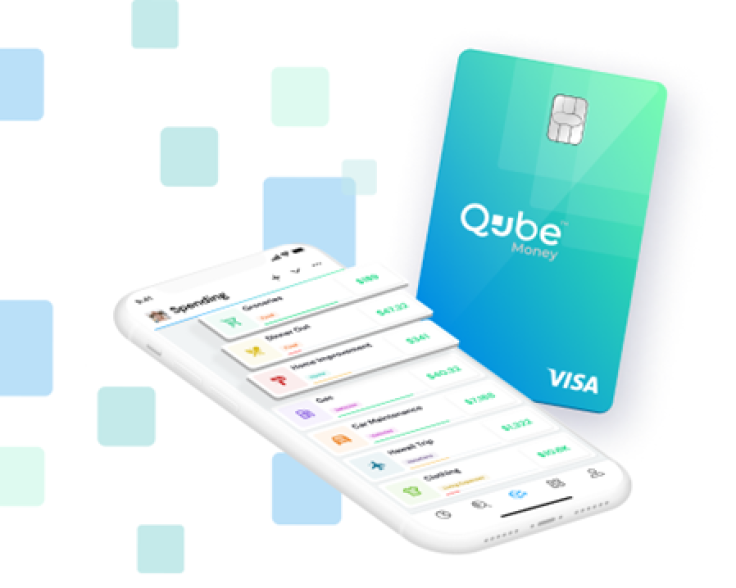
On Nov. 15th, a Personal Finance headline in the WSJ read, "There's a Reason a Killer Money-Savings App Still Doesn't Exist." Or is there? Rosemarie Groner, The Busy Budgeter, shared in a YouTube video, "I teach budgeting for a living and I can't tell you how excited I am about this technology. When I first heard about it, the idea was so revolutionary, and I knew it would change everything about personal finance."
With the announcement of the closure of the budgeting app Mint, the trailblazer of the personal financial management (PFM) industry will join a packed list of companies that have failed trying to help people spend less money. This has many scratching their heads and asking what it is about the existing banking and budgeting apps that aren't giving people what they really want. Additionally, why are people reluctant to pay for services to help them create better habits with their money?
The purpose of budgeting
Have you ever experienced the thrill of watching your money do what you wanted it to do?
For example, setting money aside for a friend's birthday gift is exciting. Watching it leave your account when you purchase the gift feels good because it is for your friend. This instant gratification is positive and motivating.
The purpose of budgeting is to get your money to do what you want it to do, so you can achieve your financial goals. The key to feeling confident and happy about your money is knowing how much money you have for a purchase when you spend money.
Financial awareness is more important than ever in today's world where most purchases happen on a card, so money often doesn't leave the bank account until weeks after the purchase. To make matters worse, spending is all over the place because the average person uses multiple bank accounts and cards.
Problematic Budgeting Technology Doesn't Help Users
Banking apps and budgeting apps like Mint use data aggregation to build a dashboard of your financial life. They do this by linking your bank and credit card accounts to pull in your transactions and account balances.
With data aggregation technology, all of the information tracking takes place after the purchase. The money is already spent; and therefore, it's too late to impact your decision to buy.
To make things worse, aggregation technology has some critical challenges that require a consistent effort to keep your budget up-to-date.
- Broken links. The connection between your budgeting app and your financial accounts breaks on a regular basis. Every time this happens, you are required to re-link your account before transactions start showing up again.
- Miscategorized transactions. Apps have tried to automate transaction categorization, but it's far from perfect. This means you need to manually categorize transactions to keep your budget accurate. Most people aren't good at keeping up with the consistent effort this requires.
- Time delays. Some transactions take up to 48 hours to show up, so it's easy to fall behind and then forget where you spent your money.
"The reason people struggle to stick to a budget is because the way society thinks about budgeting is fundamentally flawed," adds Nicole Stanley, founder of Arise Financial Coaching. "
In short, tracking budgeting tools are too late and too much work, leading to overspending, disappointment, and anxiety.
Why Mint Closed
Stanley continues, "Budgeting only works if you make spending decisions before you spend, whereas apps like Mint can only influence behavior after the fact."
The above-referenced WSJ article stated, "There is little evidence that Mint and other tracking tools make much of a difference for people who aren't already engaged with their finances."
So, perhaps Mint closed because it didn't give people financial awareness when they needed it most.
Next-Generation Budgeting Technology
Imagine if there were a Mint alternative that enabled you to spend from your budget. Think about it. Isn't that the easiest way to get your money to do what you want it to do?
Qube Money is leading the charge in a new budgeting technology that combines the convenience of digital banking with the time-proven budgeting system of cash envelopes, bringing your bank balance and spending plan together in one–Digital cash stuffing. This ensures every dollar is given a job, and then spent or saved exactly as you intended!
An App Store review said, "...Using Qube makes years of using Mint feel pointless. Qube changes behavior. Mint just tracks."
In a conversation with Dr. Mary Bell Carlson, Ph.D., CFP, AFC, financial behavior expert, and adjunct professor of personal finance at Texas Tech and the University of Georgia, she said, "Qube Money is unlike anything I've seen in my 2 decades in the financial planning, counseling, and coaching space. As a personal user, this app has the power to change not only financial behavior but relationships and lives."
What makes this technology so unique is the transaction-level authorization. Your budget approves or declines each transaction in real-time. This prevents unwanted and unauthorized purchases.

The Qube Money System
With Qube Money your digital envelopes are called qubes. There are three types of qubes: Spend Qube, Bill Qubes, and Goal Qubes. Like cash envelopes, the Qube Money system allows you to divide your money into your qubes based on your budget. Before each purchase, you tap a qube balance to load your Qube Card. This makes you aware of how much money you have left in your budget and enables you to literally purchase your groceries from your grocery qube and fuel from your fuel qube all from the convenience of the same card.
There is no need for any post tracking or reconciling amounts at the end of the month because the balance in each qube reflects real money and updates automatically and in real-time with each purchase. So, when your money is gone, your budget is spent.
Tiffany Aguire, a Qube user confidently stated that Qube Money has changed the life of her and her husband and strengthened their marriage. When comparing her experience with other budgeting apps and methods, she says that using Qube is "so much easier because we are being proactive about our money instead of reactive."
The Qube Money Debit Cards
The Qube Money primary debit card is used to spend from your Spend Qubes and it comes with a Default Zero™ security feature. Default Zero™ means the card has a zero available balance until you tap the qube balance you want to spend from. The money from that qube is immediately available on your card for 30 minutes or until a transaction is processed. After which the card returns to a zero balance. By design, transactions will decline if a qube isn't opened or if there isn't enough money in the selected qube to cover the purchase. This provides both security and mindful spending.
Qube Money also comes with additional virtual debit cards with unique card numbers generated for paying bills or shopping online. Each virtual card is connected to one qube and the funds in that qube are always available on the card unless you turn the card off (Subscription Controls). Each Bill Qube comes with a virtual account number and a virtual card. This way, you can set up autopay for your bills and online purchases while your primary debit card number is never exposed.
Primary and virtual cards are compatible with tap-to-pay applications such as Apple Pay and Google Pay.
Matthew Tarr, a Qube user for over two years, shared this recent experience, "I used my Qube Card to fill my wife's car up at a gas station yesterday morning and it must have had a card skimmer on it. Within 5 minutes I had 3 fraudulent charges try to grab over $1300. Qube blocked all the transactions automatically and notified me someone was trying to use my card. Later that day, my grocery purchases cleared as normal because I opened my "Groceries" Qube. With Qube I was protected. I didn't have to spend the rest of my day talking to banks or credit card companies to explain anything. And, I could continue using my card. Truly a fantastic and game-changing platform."
Alex Rodriguez said that Qube Money has been "literally game-changing" for him and his family. "It's that level of accountability that has allowed us to manage our money instead of our money managing us. It is just amazing."
"Combing the bank and the budget leads to a difference in the way people interact with their money," Nicole Stanley adds. "What we've found with proactive fintech like Qube is that budgeting proactively can help clients who have struggled to stick to a budget even after trying other popular budgeting apps"
Conclusion
Since traditional budgeting apps like Mint don't control the transaction, they lack the power to change spending behavior. Tracking transactions creates a delayed financial awareness defeating the purpose of budgeting.
The advancements in financial technology are giving people more control of their money.







